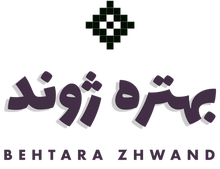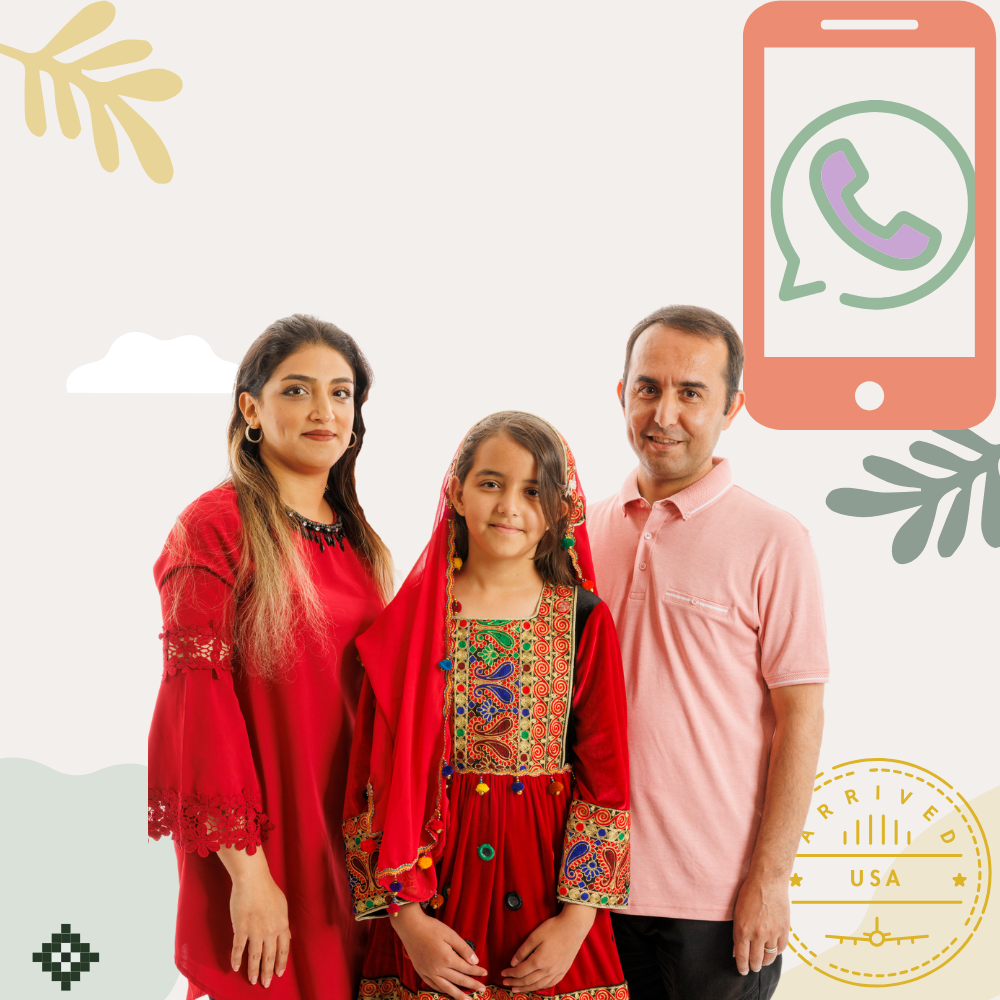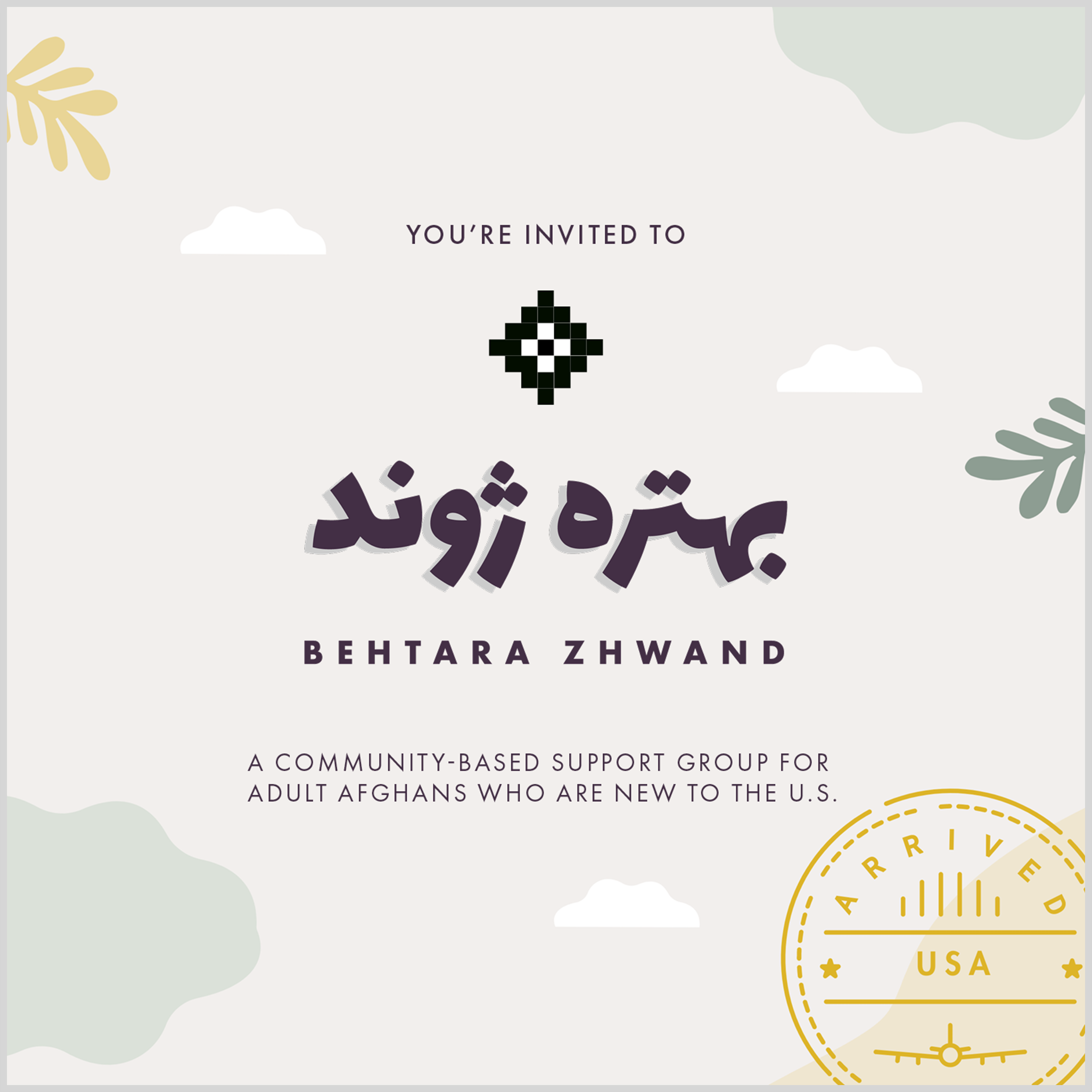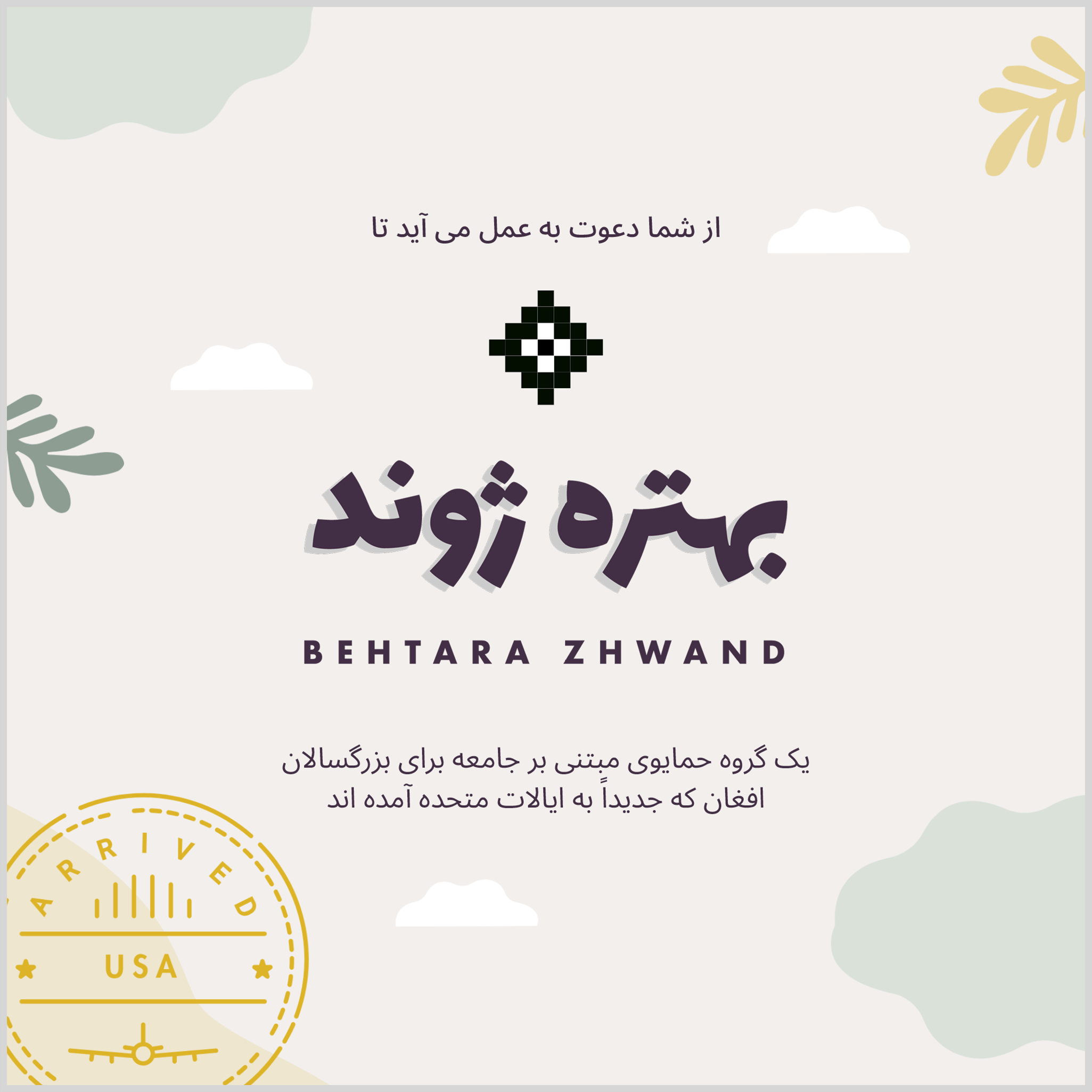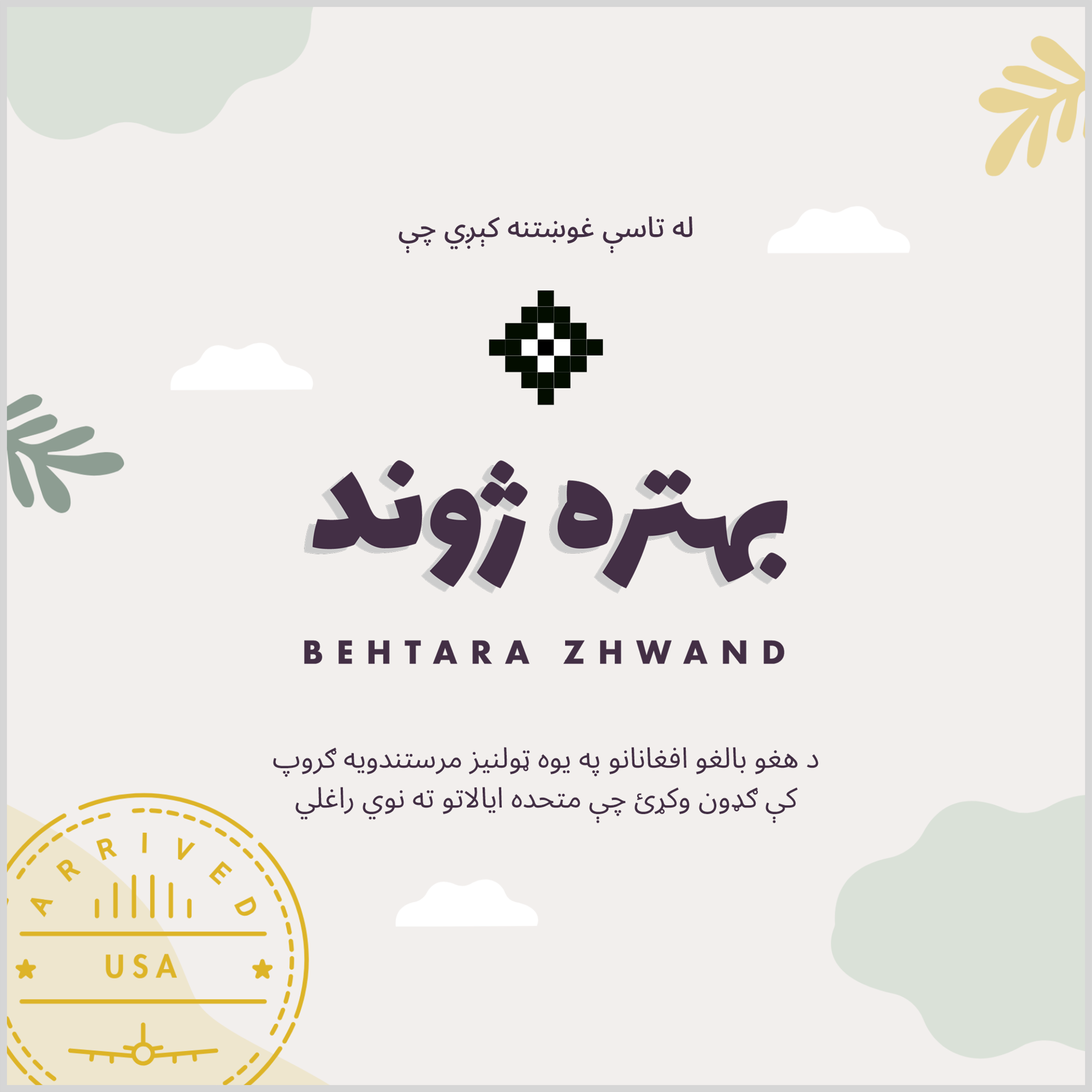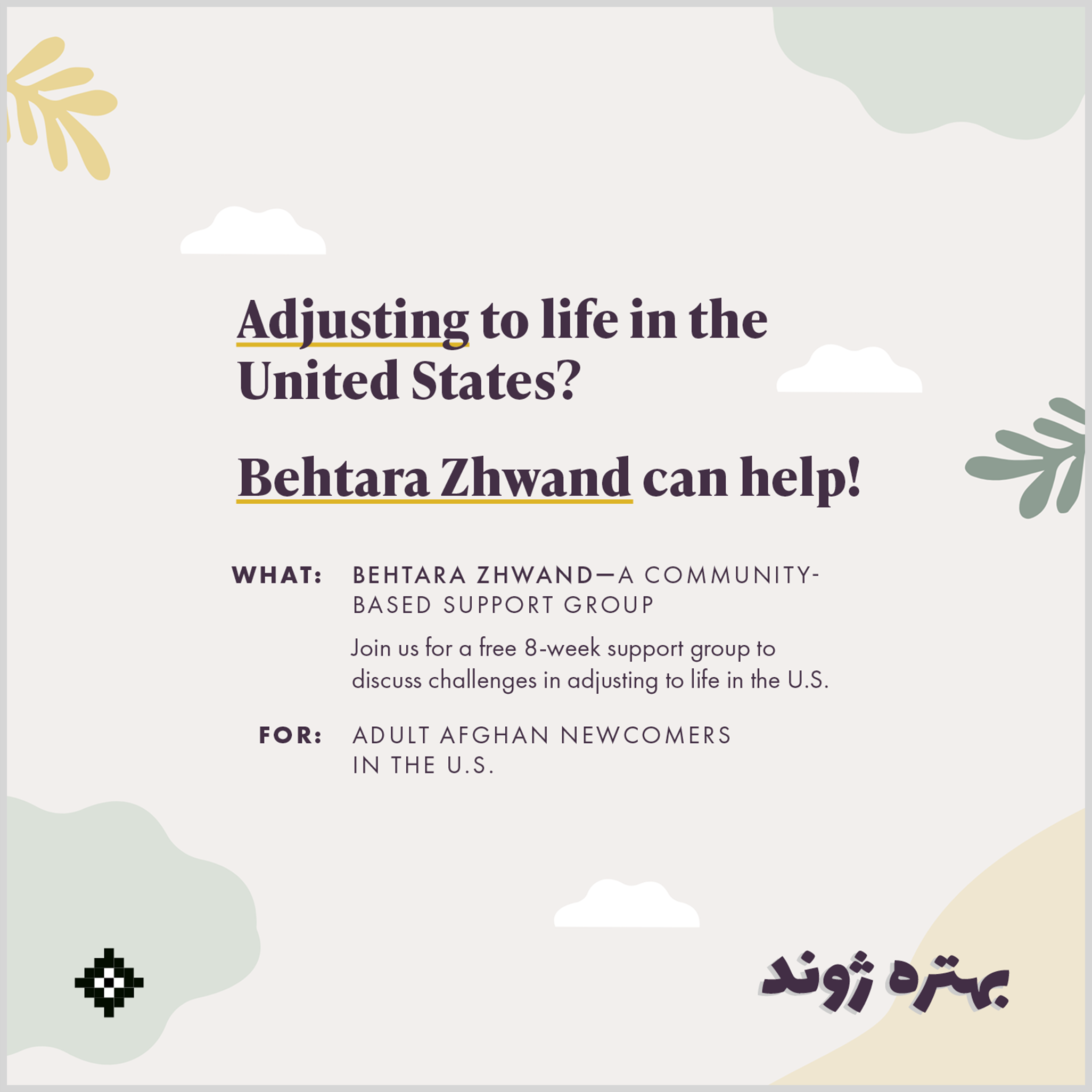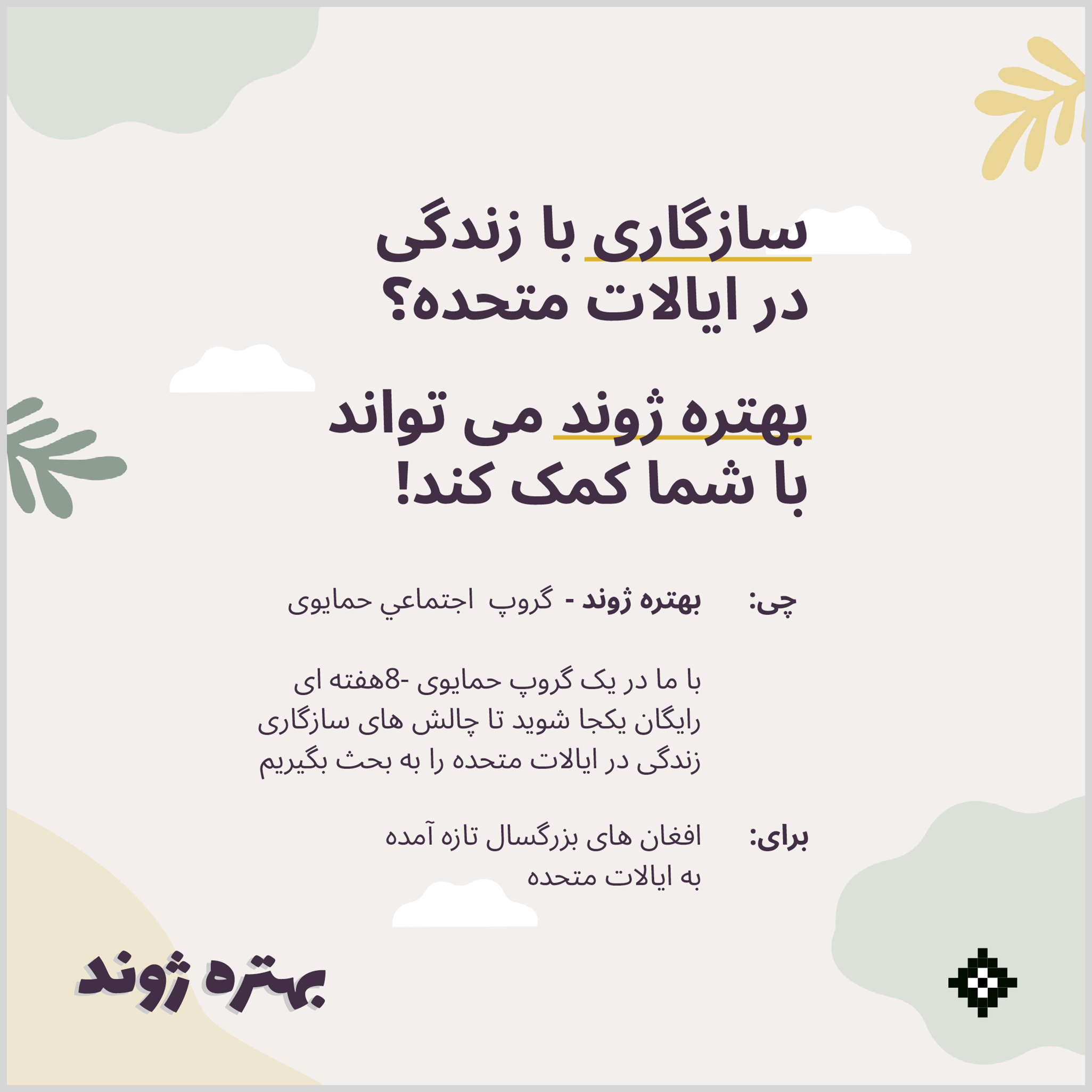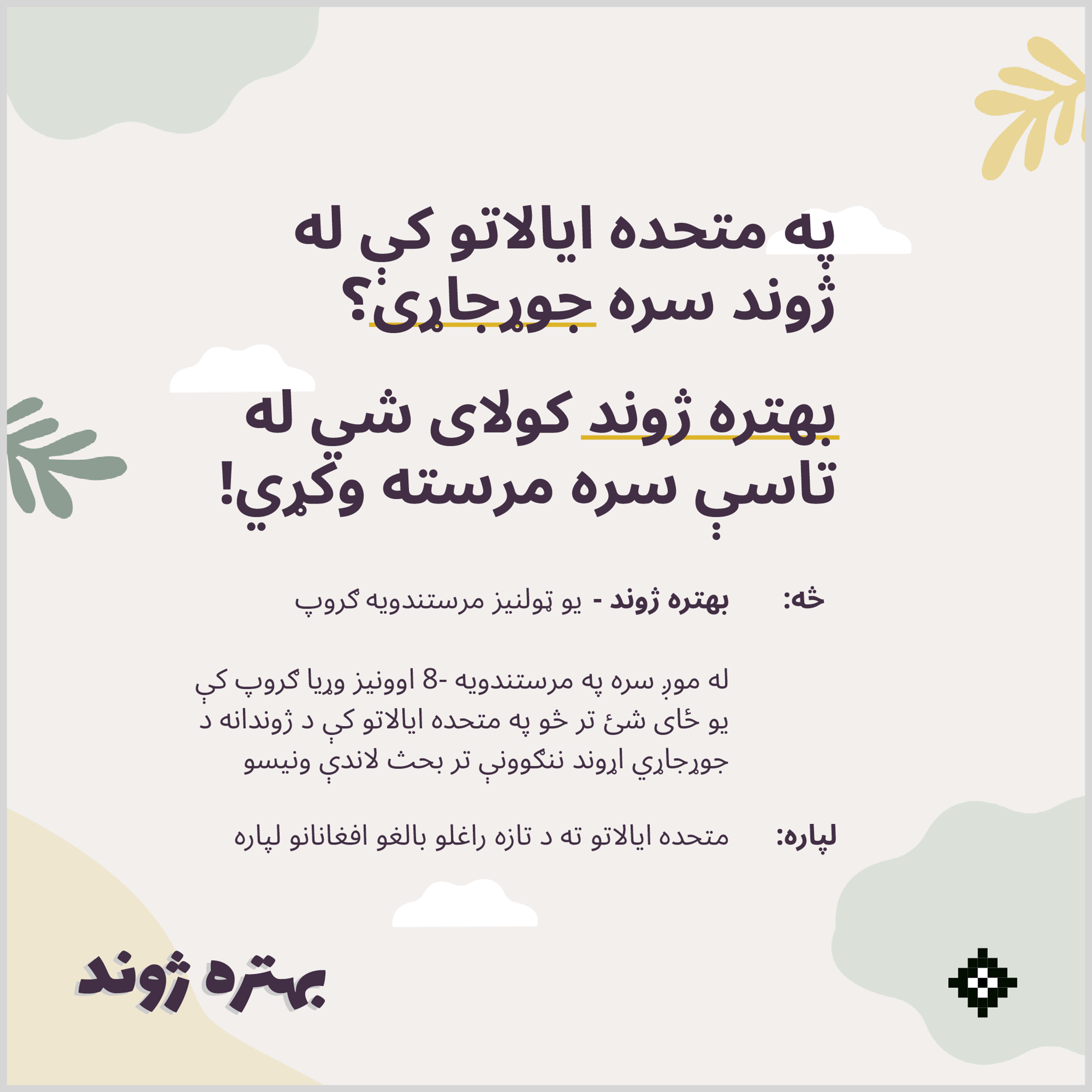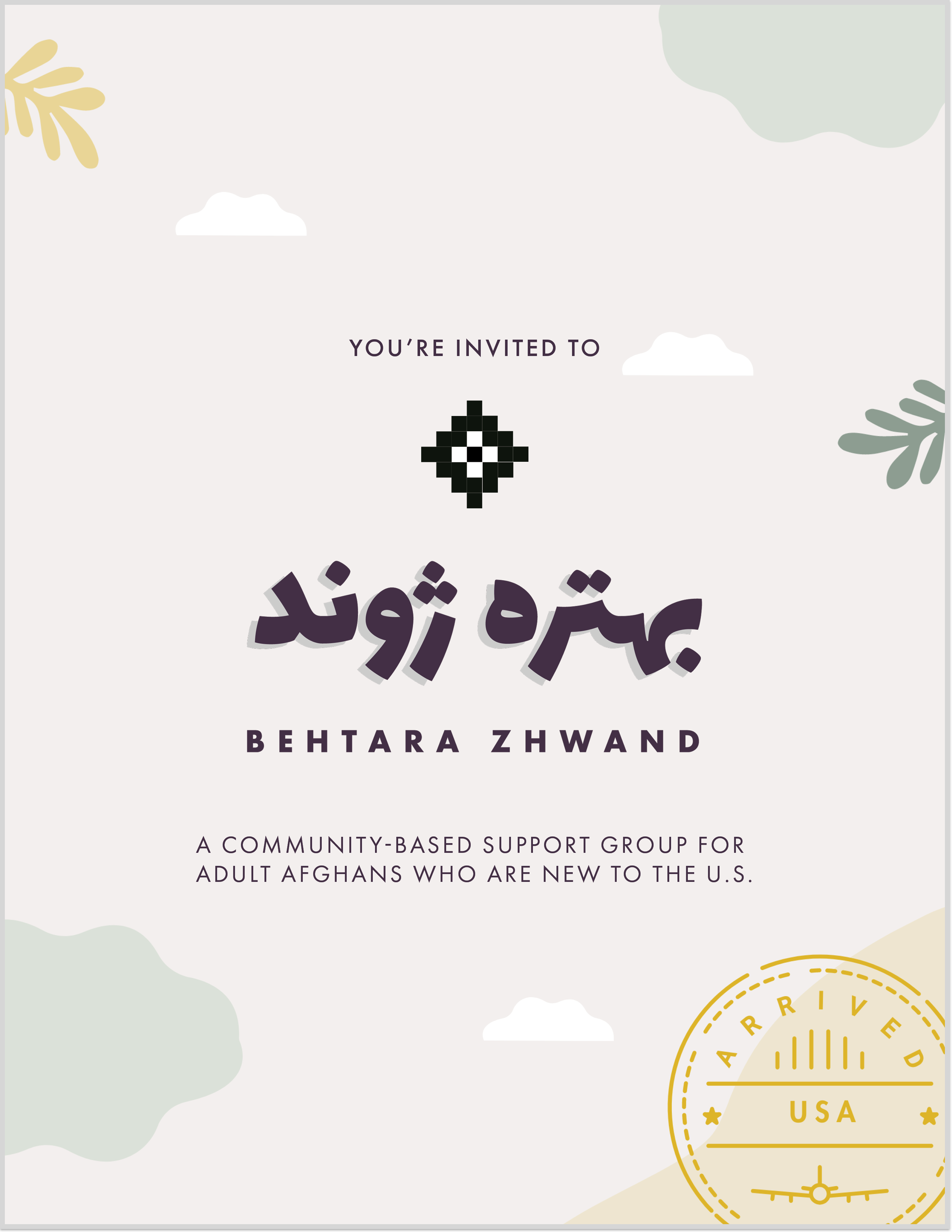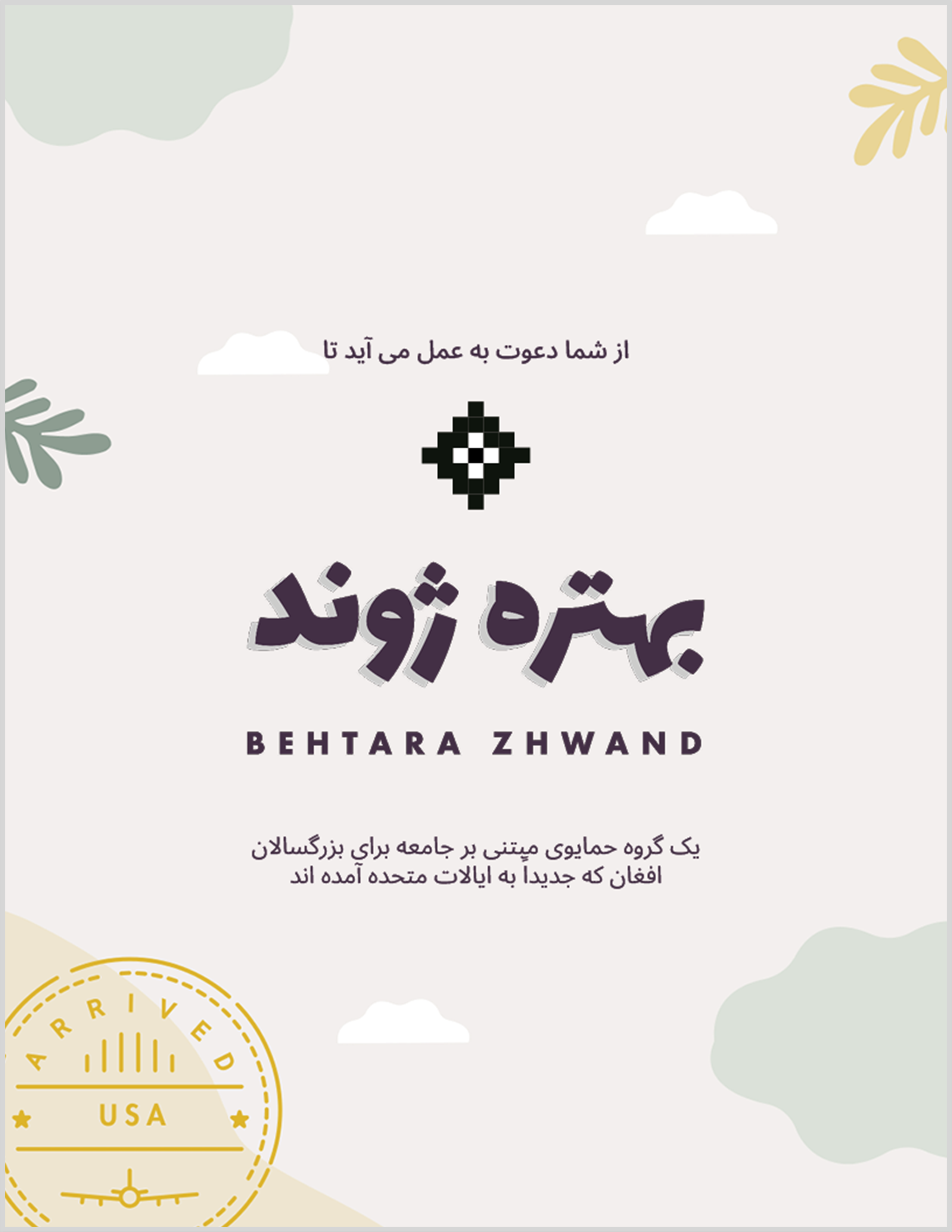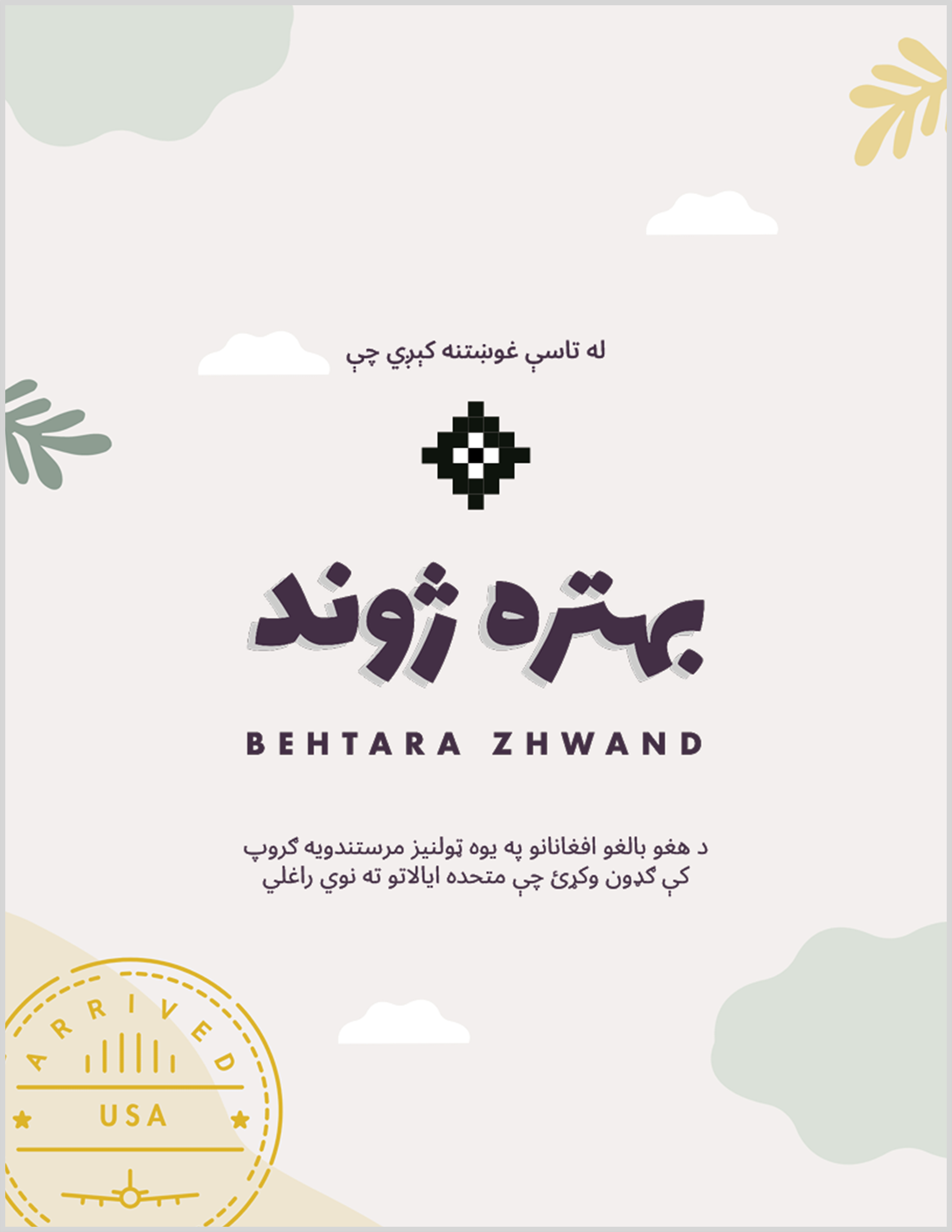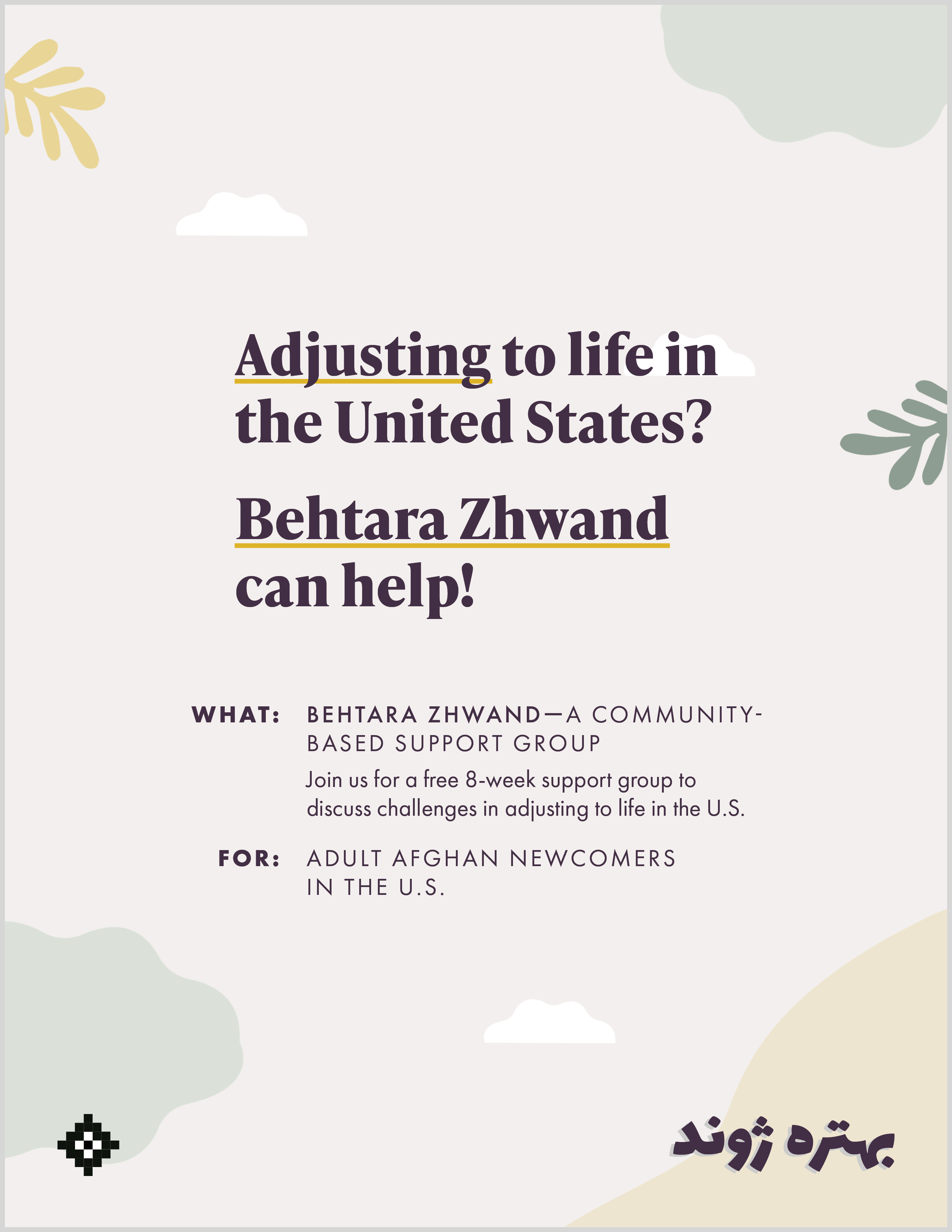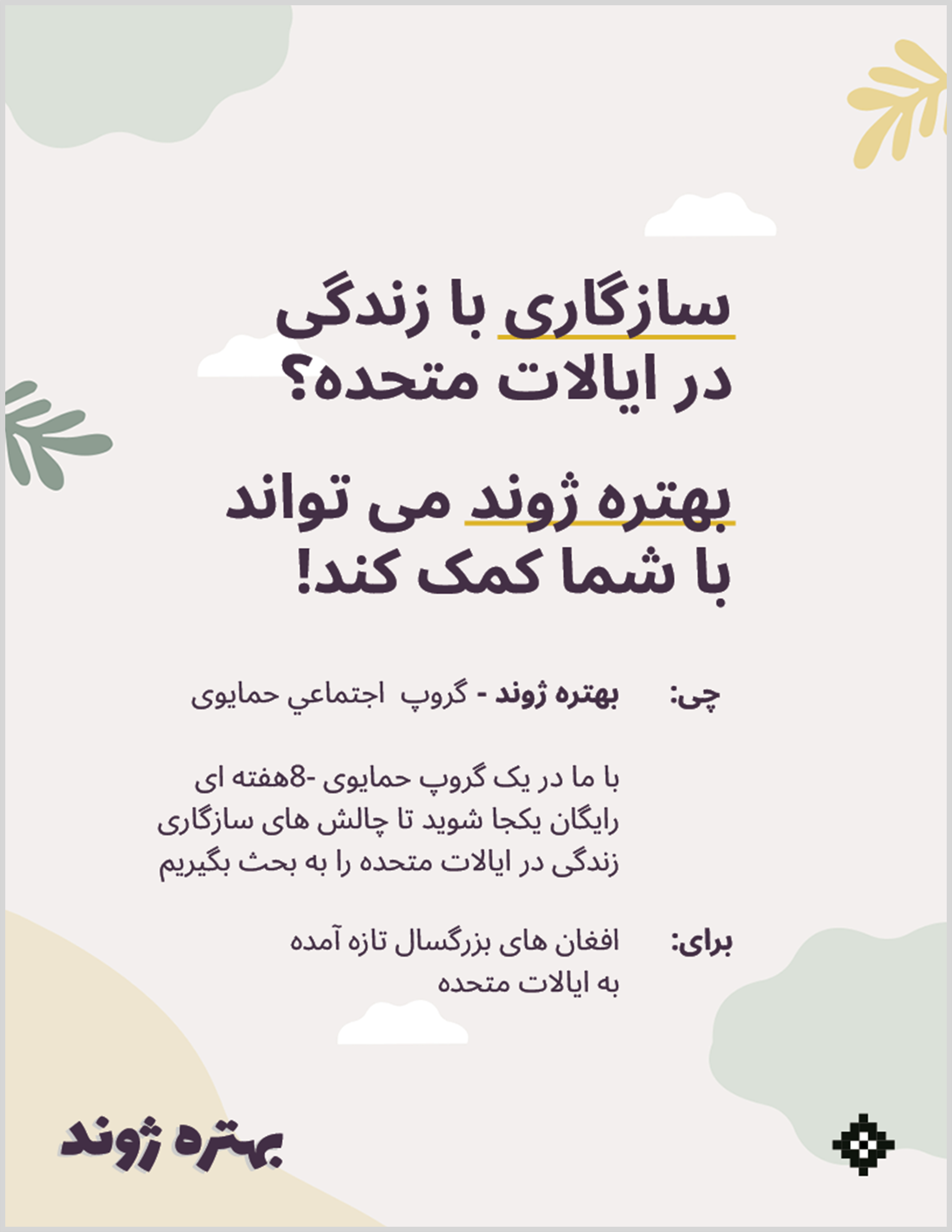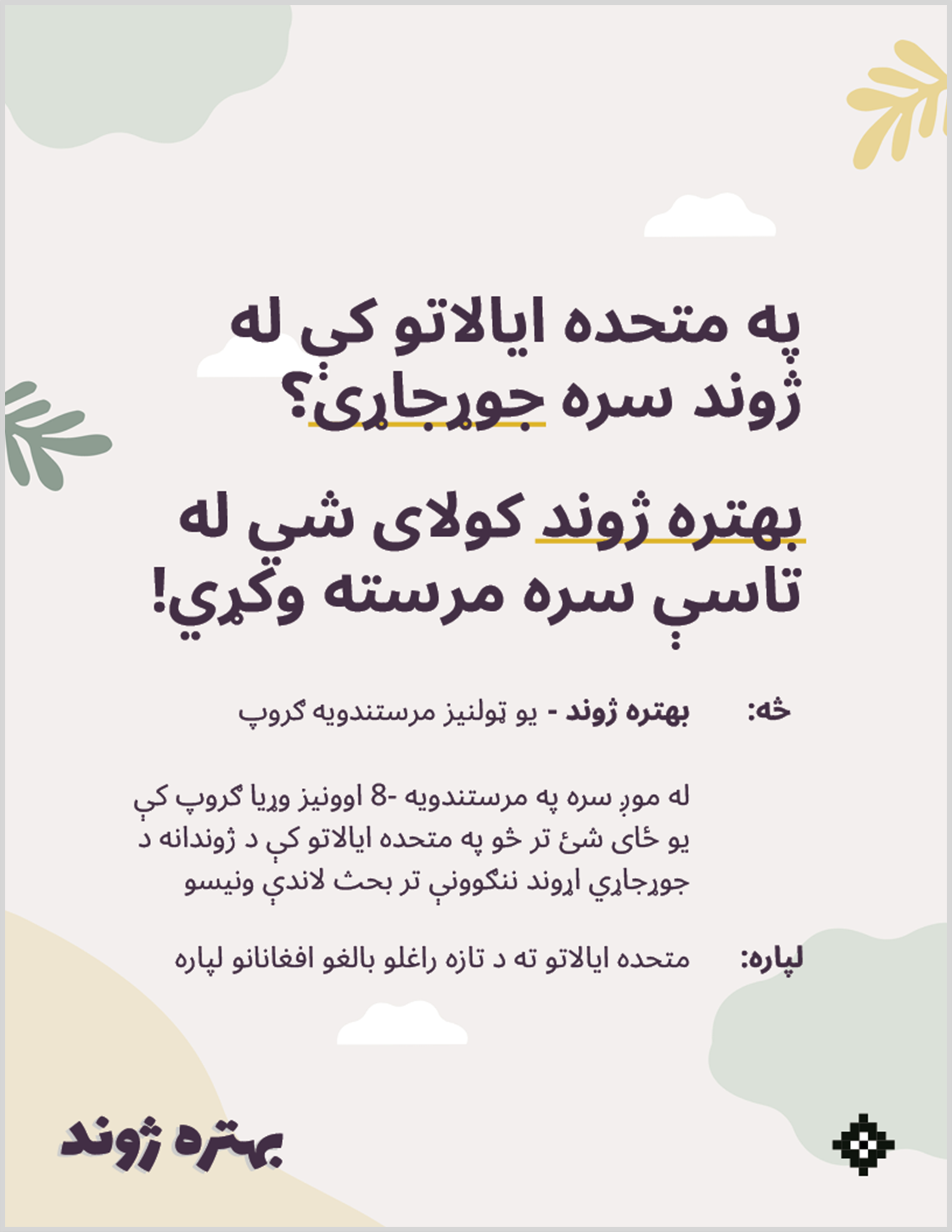Promote your Workshops
Outreach and enrollment should typically begin six to eight weeks before the group begins. Before beginning outreach, staff and agencies delivering the Behtara Zhwand curriculum should know who the intended participant audience is so they can target efforts.
Start with WhatsApp invites, then create digital or print invites tailored to the communities you serve. Fun and friendly, they serve as a first look into the meetup. Custom features like a photo bank and language editing allow you to meet the specific needs of your community.
Staff should consider using a variety of outreach methods, including but not limited to the following:
Present to existing classes
Consider presenting to existing classes, such as cultural orientation, ESL, etc., that host your intended audience members.
Hang promotional posters
Hang linguistically accessible promotional Behtara Zhwand posters in the lobby of your organization or give posters to clients during routine service encounters; consider a QR code that can take people to an audio or video version for people with low literacy.
Send SMS and WhatsApp messages
Send linguistically accessible Behtara Zhwand SMS and WhatsApp messages to clients if your organization already has client permission to conduct outreach in this manner; consider making an audio version for those with low literacy.
Post to social media
Post the Behtara Zhwand social media invite on sites frequented by intended audience members; consider making a video invite for those with low literacy.
Provide outreach materials externally
Provide outreach materials to other agencies and organizations (i.e., resettlement agencies, federally qualified health clinics, etc.).
Word of mouth
Use word of mouth by encouraging those interested to invite a friend or several friends to attend with them.
Attend community events
Attend community events to promote the group.
You're invited to Behtara Zhwand – a community-based support group for adult Afghans who are new to the U.S.
Come join us for a free 8-week [online or in-person] support group to discuss challenges in adjusting to life in the U.S., learn skills for managing these challenges, make social connections, and learn about resources in the local community that can help. Are you interested in learning more?
👍🏾Yes, please
👎🏾No, thanks
*If the person says yes, the texter can respond with the talking points in the second text option via text or phone call.
I am so excited you may be interested in Behtara Zhwand – a community-based support group for adults who are new to the U.S.
I wanted to share a bit more about this support group so you can decide if it is right for you. 👍
This support group is a private and confidential space for adult Afghan newcomers to discuss some of the challenges in adjusting to life in the United States, learn some skills for managing these challenges, make social connections, and learn about available resources in the community.
- Separate groups will be available for men and women. 👫
- We will meet [in person/online] once a week for eight weeks in a row. Each meeting will last 1.5-2 hours and will be held in [Dari/Pashto]. The person running the support group will be [name of person and brief introduction].
- You do not have to attend every meeting and can drop out at any time. 👋
Do you have any questions for me?
Is this support group something you might be interested in?
Access to Information / Registration
Make sure it is as easy as possible for possible participants to get more information and/or sign-up to attend. This can include having in-person, call-in, or online information sessions, providing a phone number people can call, or having a way for possible participants to leave their contact information so someone can call them (i.e., a WhatsApp number, an answering machine, etc.).
Informed Decisions
Possible participants should always be given enough information to make an informed decision about participating. Staff and organizations should tell possible participants the group’s purpose, who is expected to attend, and the number, frequency, and duration of the meetings.
Contact Information
If participants are interested, ask if you can have their phone number and the best way to contact them to remind them about the first meeting.
Reminders
Staff and organizations should remind potential participants one week ahead of the meeting and one day before the first meeting. Reminder calls or SMS messages should go out 1 or 2 days ahead of subsequent meetings.
Group Capacity
After the first meeting, it is common for participants to get more excited about the group and to refer a friend. You want to decide ahead of time if the group can accommodate new referrals after the first meeting. Alternatively, there could be an announcement at the end of the cohort for the next cohort and ask participants to refer any family or friends who may be interested. Using a waiting list can also help you plan your next cohort.

